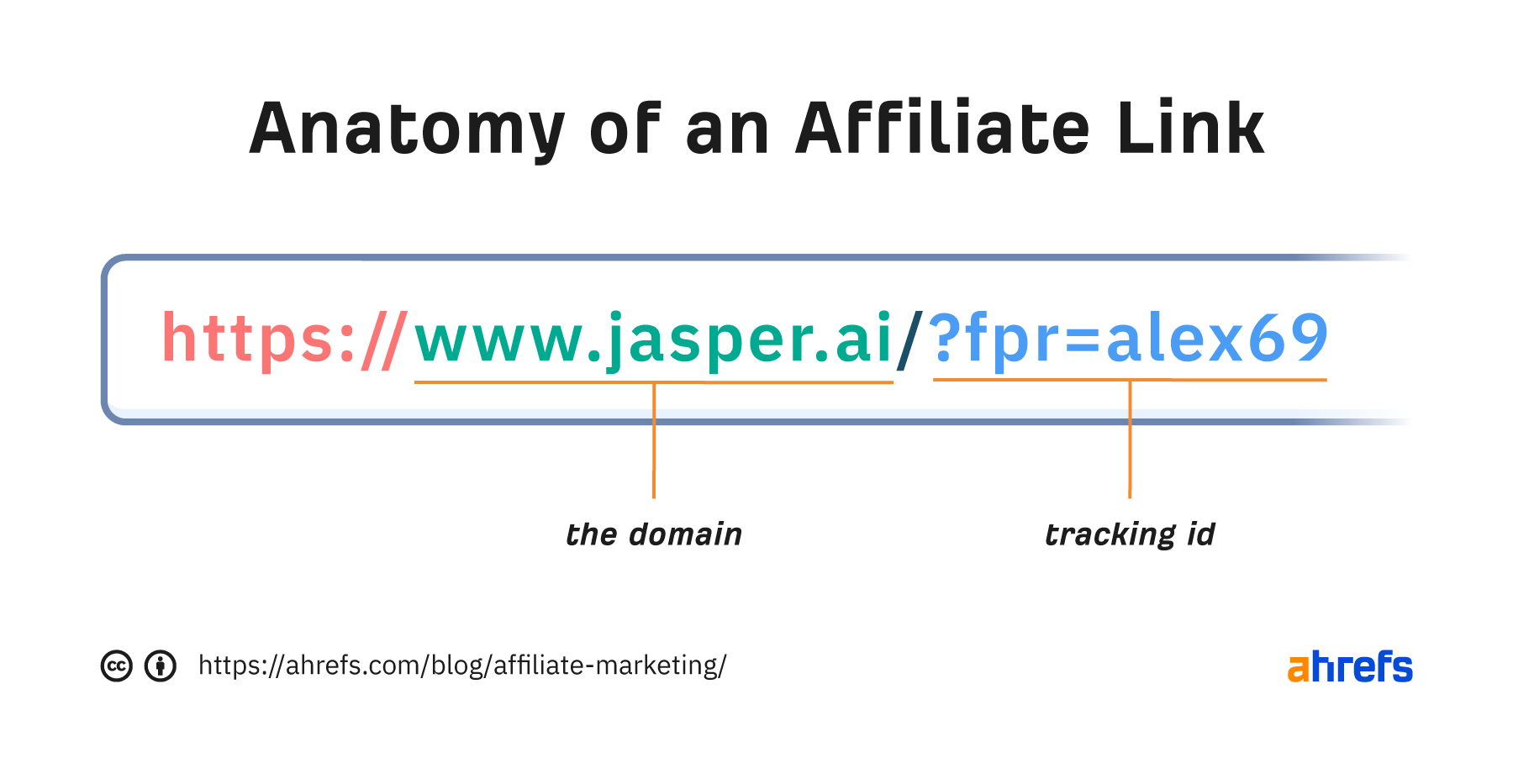Affiliate Marketing - An Amazing Side Hustle in 2024

If making money online while you sleep is the millennial dream, affiliate marketing is perhaps one of the most legitimate and scalable ways to realize this dream.
It is as close as it ever comes to the ideal make-money- online situation – you don’t have to have a product or build anything, except your audience base which you already kind of half have in the form of your social media followers.
Considering that most of us today have a decent following on our social media handles and are familiar with basic methods to grow our following on social media, growing an audience base is not really that big of a deal.
So, then, what is affiliate marketing?
Marketing involves the activities carried out to promote the purchase of your goods or services. And when a third person or an affiliate (on the internet) carries out these activities for you, it is called affiliate marketing.
The affiliates, sometimes called publishers, get a share of the profit the company makes on the sale as a commission, or an agreed-upon sum if the affiliate is paid for bringing in leads.
In the latter case, the affiliate is paid when someone who lands on the company’s page through the affiliate link performs some action that qualifies them as a lead, eg. signing in or subscribing.
As per Statista, affiliate marketing spending in the United States increased from $5.4 billion in 2017 to $8.2 billion in 2022. And next year is looking equally promising too.
Right now, affiliate marketing is the second largest revenue generator for online publishers after only Google AdSense.
In my view, affiliate marketing basically runs on the same basic principles as referral marketing, actually, word-of-mouth marketing, to be more precise.
Because, what companies are actually looking to leverage through affiliates is their credible word, and they play on the goodwill of the affiliate to promote their products and services.
What is in it for The Companies a.k.a Affiliate Partners
The companies essentially get to outsource their marketing – and pay for it on a performance-based basis. They only pay when the marketing shows results either in the form of leads or conversions, whichever way they want to do it.
Through the affiliate’s niche audience, they get to achieve highly focused marketing where only the most relevant audience is targeted. Moreover, by having different individuals market their brand, they get to use a variety of marketing techniques while paying for only the ones that work.
What is in it for The Affiliate
If you have got a hobby or an interest that you post frequently on your social media or your blog, you are likely to have acquired a niche following. And if that niche is marketable, i.e., if there are companies out there offering products or services related to that niche, you have basically got yourself a pool of leads.
You just need to find those companies and see if they have got an affiliate offer on their website and get onboarded if they do.
Note: The law requires affiliates to clearly state on their publishing platforms that they are compensated for promoting the company they are promoting.
In most affiliate marketing programs, you can get anywhere between 5 - 40% of the sale and some programs offer flat rates as well.
In cases when the affiliate is paid for getting people to take subscriptions, the affiliates are often paid on a recurring basis until the subscription continues. Such programs can be a good source of regular, steady income.
The biggest appeal of the marketing model for the affiliates, however, is its scalability. While as a regular salesperson, you just work for one company, as an affiliate marketer, you can put affiliate links of multiple companies related to your niche on your online publishing platforms and earn commissions from each of them.
How It Works
The company you market for gives you a unique affiliate link to share on your publishing platforms, clicking on which takes the user to the company’s page.
The link has a unique extension attached to it that functions as a tracking id for the company and lets them trace the lead/conversion back to your affiliate link.

The purchase or lead can also be traced back to the affiliate by means of cookies. Cookies are small files that are generated in the user’s computer when they visit a web page to track user behavior on the website.
So, when someone clicks on your affiliate link and is redirected to the company’s webpage, the webpage stores a cookie on the user's device for some time, say 24 hours which is the case with Amazon’s affiliate program, the biggest affiliate program in the world.
In a sale-based commission mode, you will be paid if the user makes a purchase at any time during those 24 hours.
What that means is that suppose a user goes to Amazon’s webpage by clicking on your affiliate link this morning, doesn’t make a purchase and leaves the site. Now, if they visit the same webpage again without your affiliate link anytime before the same time tomorrow morning, you still get your commission for that user.
However, some affiliate programs also use the last-click attribution model wherein you only earn a commission when someone makes a purchase on the visit to the website they made through your link. What that means is:
Suppose someone lands on the company’s page through your link but leaves the page without making a purchase. Now, if they visit the page five minutes later, this time without using your link, and make a purchase, you will not earn a commission for the purchase.
So, if you are considering joining an affiliate marketing program, be mindful of the kind of attribution model the program offers.
Top 5 Affiliate Marketing Programs
Here is a list of some of the most reliable affiliate programs for you to consider joining:
- Amazon Associates: Amazon is the site to start the trend of affiliate marketing and its affiliate program is one of the most trusted programs in the industry. With a wide range of products to promote in different niches, alluring commission rates, and reliable payment options, Amazon Associates is a great option for affiliate marketers looking for a dependable program.
- ShareASale: ShareASale is a large affiliate marketing network that provides a wide range of products and services to promote. The platform is known for its reliable tracking and payment systems, as well as its user-friendly interface and helpful customer support. You also get the option to choose from pay-per-lead and pay-per-sale with them.
- Synkdup Headhunter Program: It is an online recruitment marketing program with the same business model as other affiliate programs except that you promote job openings across the U.S. instead of products/services. You share links to job postings on your social media and earn a commission of up to $25 whenever applies for a job through your link.
- CJ Affiliate: CJ Affiliate also offers a wide range of products and services across niches to promote. The program is known for its reliable tracking and reporting tools, as well as its high commission rates and timely payments. You can earn commissions through a variety of performance-based models, including cost-per-sale, cost-per-lead, and cost-per-click.
- Rakuten Marketing: Rakuten Marketing is a well-established affiliate marketing program that provides a wide range of products to promote. The platform is known for its reliable tracking and payment systems, as well as its helpful customer support and regular promotional opportunities for affiliates.
Though it is by no means an overnight success scheme and often takes up a considerable amount of time and effort before profits start to roll in, you should definitely consider affiliate marketing if you are looking to build yourself a steady source of passive income.
I’d say the most important question to ask yourself when figuring out if affiliate marketing is for you or not is “Do I have a niche that I could speak as a kind of authority about?” Remember that the essential function of the affiliate is not to spread the word but to vouch for the brand’s word as someone who has some kind of authority to do so either by virtue of their expertise in the niche or personal experience with the brand’s products/services.
The main appeal of affiliates for companies is that their promotional claims are validated by the affiliate who is seen as someone who knows about the field by the audience.
It is mostly those affiliate marketers who make it big that stick to their own field by getting brands to promote in that very field, though if you have a very big social media following, you may do quite well by endorsing random products as well.
(856x500px)(400x234px).jpg&w=256&q=75)





